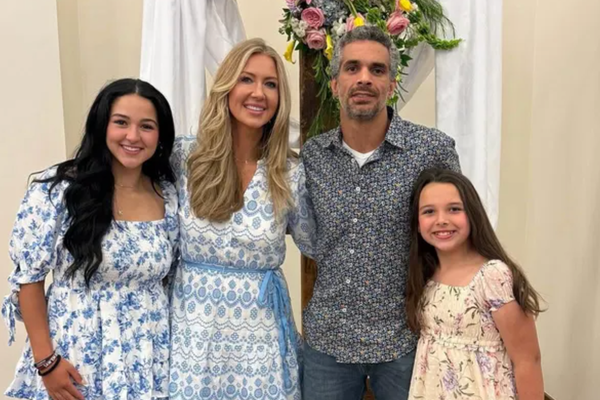
When Hurricane Helene drowned western North Carolina in muck and floodwater last year, it caught folks off-guard.
Now, local leaders in places like Asheville expect the Republican-led reconciliation bill – called the “big, beautiful bill” by Donald Trump – to bear down on rural America. And they wonder whether people are missing the warning signs.
“It’s going to have to hit them first,” said Laurie Stradley, CEO of Impact Health in Asheville, a Medicaid-funded non-profit providing social services to some people still digging out from the flood.
Medicaid is the single largest health insurance program in the US. The public program covers 71 million low-income, disabled and elderly US residents. It pays for half of all US births and the care of six in 10 nursing home residents.
When Trump’s sprawling tax-and-spending bill passed on Thursday, it heralded more than $1tn in federal cuts to Medicaid, which experts worry will push Republican-led states to abandon parts of the program and leave people without access to timely healthcare.
“This is an extraordinarily regressive bill,” said Joan Akler, executive director and co-founder of Georgetown University’s Center for Children and Families. “This is the largest rollback of healthcare coverage that we’ve ever seen and all in service of an agenda to drive tax cuts that will disproportionately benefit wealthy people and corporations.”
Medicaid “expansion” is a key provision of Obamacare, formally called the Affordable Care Act of 2010. The expansion provides largely no-cost health insurance to people earning up to 138% of the federal poverty level, or $36,777 for a family of three. Although Obamacare has been the law for more than a decade, Medicaid expansion proved politically divisive in Republican states, and many only recently decided to accept enormous federal subsidies to cover their residents.
North Carolina will lose $32bn in the next decade
The Medicaid cuts in the bill could have particularly acute consequences in North Carolina, a politically competitive state, where experts said the bill could trigger a “kill switch” to end Medicaid expansion.
“If the state spends any state dollars to implement the expansion population or expansion coverage, it triggers an automatic ending to Medicaid expansion,” said Kody Kinsley, North Carolina’s former secretary of health and an architect of the state’s Medicaid expansion.
North Carolina is set to lose $32bn in federal funding in the next decade, according to an analysis by the office of the Republican senator Thom Tillis, who represents the state. He’s one of just three Senate Republicans who voted against the bill on Tuesday.
North Carolina’s expansion only went into effect in December 2023, and in less than 19 months it enrolled more than 650,000 people – all of whom will lose coverage if the program ends.
Those North Carolinians are only some of the 17 million people expected to lose health insurance by 2034 across the country, according to estimates from the non-partisan Congressional Budget Office. Nearly 12 million people will lose insurance because of attacks on Medicaid.
“Ultimately, Medicaid being cut is going to kill people,” said Molly Zenkler, a nurse at Mission hospital in Asheville. “I deal with people getting their feet literally amputated because they don’t have access to diabetic care. This is just going to get increasingly worse.”
The reconciliation bill cuts state funding through a number of provisions. On healthcare specifically, the bill attacks complex financial maneuvers states use to draw down federal funds. It also requires states to spend enormous sums – perhaps tens of millions of dollars per state – implementing work requirements, effectively adding layers of expensive red tape.
Congressional Republicans in favor of the bill argue it targets “waste, fraud and abuse”. However, it is already well-known that most Medicaid beneficiaries who can work do, and that Medicaid is one of the most cost-efficient health programs in the US, according to the American Hospital Association.
North Carolina is one of a dozen conservative states that wrote a “trigger” law into Medicaid expansion. Not all function like North Carolina’s – the laws are, in the words of an expert with Georgetown University’s McCourt School of Public Policy, a “lesson in federalism” – but they nevertheless underscore the difficult choices state legislators will face because of congressional Republicans’ cuts.
One such program that could be on the chopping block is a pilot with Impact Health, which uses Medicaid expansion funds for social needs that affect health – an effort to reduce long-term costs. Stradley gave the example of a Medicaid-covered child with severe asthma who hit the local emergency room three times a week for breathing treatments.
Impact’s program used Medicaid funds to replace moldy rugs with laminate flooring in the child’s home, and to buy a vacuum with a Hepa filter. The cost to Impact Health was about $5,000, “but now this child is going to the emergency room a couple times a year instead of a couple times a month. And so, every month we’re saving about $4,500.”
The program’s knock-on effects boost the local economy: the work to replace the rug was done by a local carpenter, and the child’s mother isn’t calling out from work, increasing her job stability.
“One of the ways that we talk about this program is that it’s a hand up rather than a handout,” she said. “Almost half of the folks that are recipients in our program are children … Then you look at the adults. Most of them are working multiple jobs, and those jobs don’t come with benefits, because they’re working two or three part-time jobs in order to make ends meet.”
The enormity of Medicaid means large cuts to the program imperil not only patients, but the institutions that serve them – especially rural hospitals and clinics hanging on “by a thread”, according to Kinsley.
One of US residents’ few rights to healthcare is in emergency departments, where hospitals are required to stabilize patients regardless of ability to pay. That makes emergency departments the go-to source for healthcare for the uninsured.
An analysis released by the Sheps Center for Health Services Research at the University of North Carolina at Chapel Hill earlier this year showed that 338 rural hospitals around the country were at risk of imminent closure with the cuts to Medicaid contained in the bill.
‘Hospitals will be forced to restrict services, or close’
Rural states such as Kentucky are expected to be disproportionately hard-hit as well. Thirty-five of the rural hospitals at risk of closure – about 10% – are in Kentucky, even though Kentucky’s 4.5 million residents comprise about 1.3% of the US’s population. About a third of Kentucky residents are on Medicaid, according to figures from Kentucky’s cabinet for health and family services. The program benefits about 478,900 adults.
The situation is similarly dire in Arizona, another battleground state, which also has a trigger law on the books. Although the reconciliation bill may not “trigger” a rollback of Medicaid expansion, it does undermine a key financing mechanism for the state’s program called a “provider tax”.
“We estimate Arizona’s healthcare system would lose over $6bn over the next seven years,” said Holly Ward, a spokesperson for the Arizona Hospital and Healthcare Association, in a statement.
“In other words, more than 55% of Arizona hospitals would be operating in the red,” she said. “Hospitals will be, at best, forced to restrict services such as obstetrics, behavioral healthcare and other complex services, and at worst, will close their doors altogether.”
Another issue is the potential for Republicans’ cuts to drive up the cost of healthcare for Americans who are privately insured, including through employers. As hospitals fight to survive, they will try to extract as much money as possible from other sources of funding – namely, commercial insurance.
In addition, rural healthcare providers worry the water will be muddied by the sheer complexity of US healthcare. Private companies have a hand in managing – and therefore branding – state Medicaid programs.
“A lot of our rural voters may not even realize that what they have is Medicaid, because there are so many names for it,” said Stradley. However, the precarious situation is already worrying people whose lives have been stabilized because of Medicaid.
Amanda Moynihan is a single mother of three children – ages nine, 12 and 16 – living in Kuna, Idaho. Medicaid expansion has helped her become a “functioning human in society”, she said. Routine medical care for herself and her children, along with other assistance programs, has meant the difference between grinding poverty and a shot at the middle class.
Idaho, one of the most politically conservative states in the union, expanded Medicaid in 2018 with an overwhelming ballot-referendum vote of 61-39. Even if Idaho’s “trigger law” does not go into effect, the state could face similar fiscal challenges to Arizona.
“Back two years ago, before I started school, I was just in fight-or-flight, just trying to pay the bills there. I didn’t ever see a future of what I could do. And then I just started with one class,” she said.
Moynihan has completed an associate degree in psychology and is starting the social work bachelor’s degree program at Boise State University in the fall. For now, she’s working part time with the Idaho Commission for the Blind and Visually Impaired and planning to pick up work at a gas station because it has a college scholarship benefit.
But without stability to pursue higher education, her future “would be making the minimum wage, which is about $15 an hour, barely paying rent in a low-income household”.







